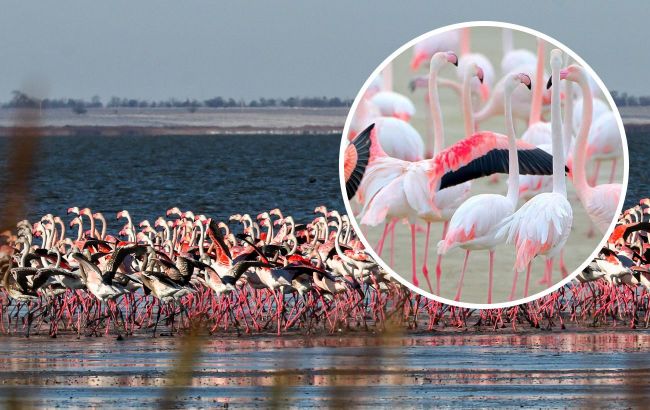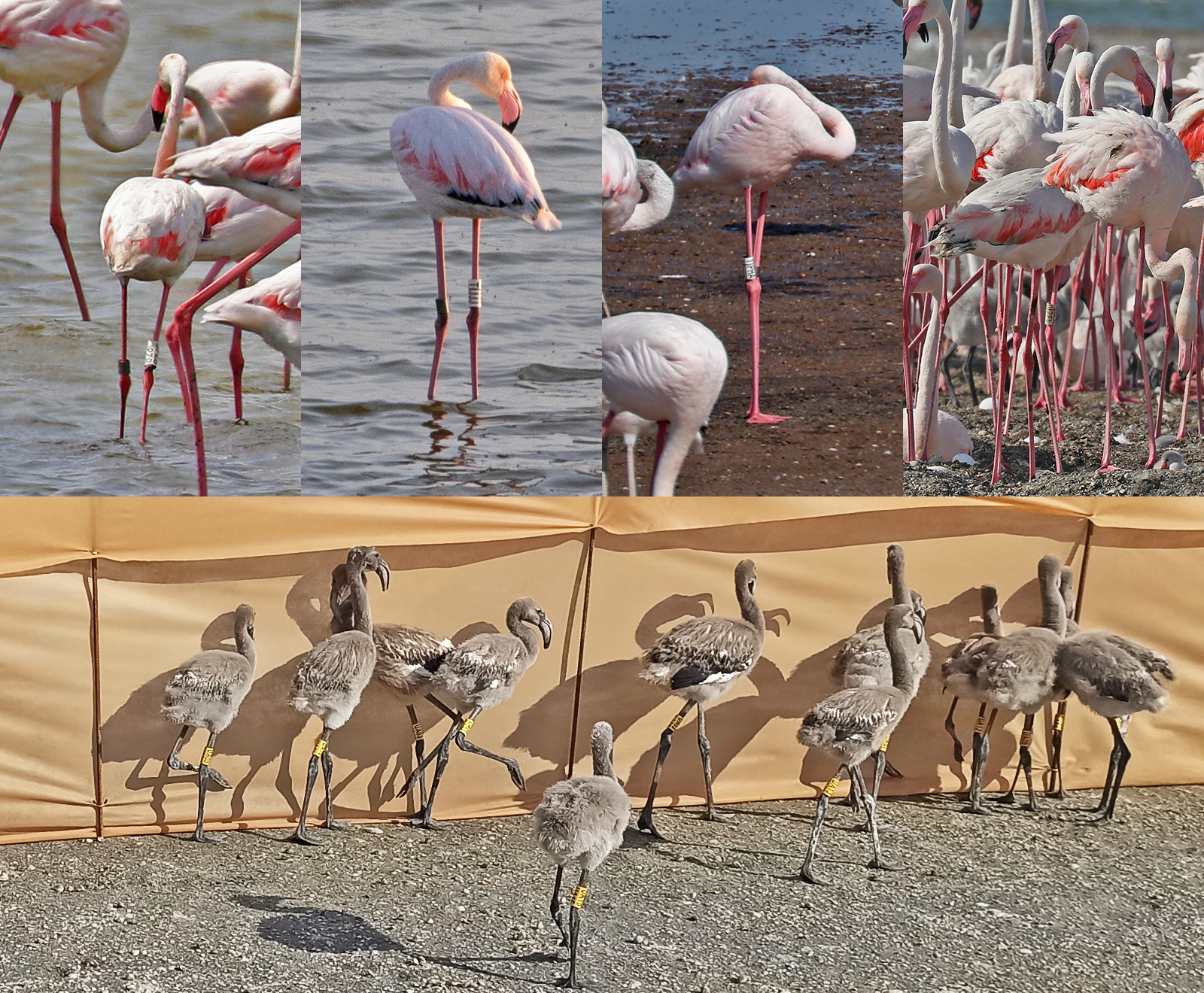Unique pink flamingos under threat near Odesa, Ukraine
 RBC-Ukraine collage
RBC-Ukraine collage
The unique birds - pink flamingos - have returned to the Tuzly Lagoons National Nature Park in the Odesa region, Ukraine. However, this year, the conditions for nesting have been particularly unfavorable for these birds. The reserve has reached out to people with a crucial request.
In recent weeks, the pink flamingos have been residing at the Tuzly Lagoons and have begun to wander in search of a safe nesting place.
Last year, the birds initially chose an unsuccessful location - very close to a town and people, which caused constant disturbance.
Only after leaving their nests and finding a safe place did they return to nest and raise their offspring. At that time, 192 chicks were born, 18 of which were successfully ringed.
Last year's nesting site is now covered with water, so the flamingos are once again in search of a nesting place.
"We appeal to everyone who has learned about these wonderful birds residing in our national park, as well as to local residents who visit the shores of the lagoons - if you are lucky enough to encounter flamingos, please do not approach closer than 300 meters to these remarkable birds, especially to their likely nesting sites, and preferably do not disclose your meeting place to the public (not everyone is as conscious as you)," the park authorities ask.
Among millions of places worldwide, flamingos have chosen the Ukrainian lagoons as the best place for their babies to come to this world, so it is worth respecting their choice and giving them a chance to reproduce.
These incredible birds are listed on the International Union for Conservation of Nature Red List and require protection in Ukraine, as we cannot let them down.
"Explore, study, appreciate, and protect!" the Tuzly Lagoons National Nature Park urges.

Pink flamingos in the Tuzly estuaries (photo: Ivan Rusiev and Oleksandr Bronskov)

